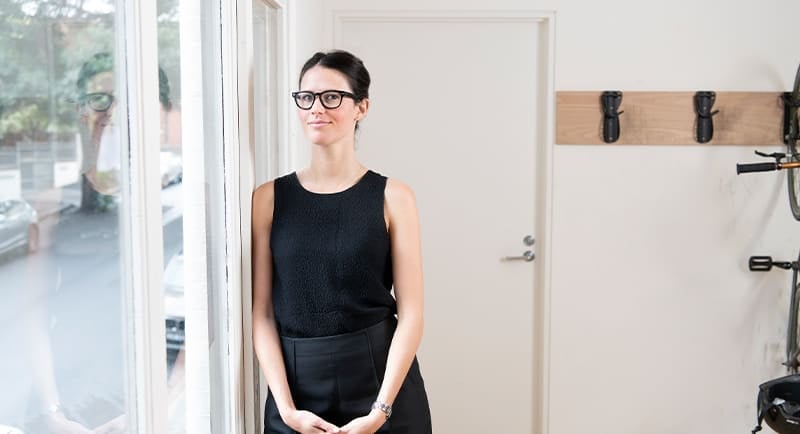On May 26th, Mediaweek’s Next of the Best awards celebrated the best of under-40s talent across the media industry – including TV, radio, media agencies and PR.
Taking home gold for Publishing was the editorial director at Broadsheet Media, Katya Wachtel.
Mediaweek caught up with Wachtel about her Next of the Best win and her view on how the industry has changed/adapted in the past decade.
MW: Congratulations on winning gold, how do you feel about the win?
KW: It was very exciting and unexpected. It’s lovely to be recognised and was also exciting to have been shortlisted in the first place. For me the best part about the award is what it represents about Broadsheet editorial broadly and the talented team I’m lucky to lead, and which brings our vision and strategy to life.
MW: How does this award reflect the work of you and your team?
KW: We work really hard on and care deeply about the content we create, from our bread-and-butter editorial about the latest openings around the city to deep-dive features about the people driving culture across Australia and New Zealand to the copy and photo selection in each and every post on social media.
We strive for excellence in every facet of the editorial process and in everything we publish, which means we often don’t make it easy for ourselves! We go the long way sometimes in pursuit of that excellence. Whether we are recognised individually or as a team, I see an award like this as proof that our hard work and ambition is paying dividends, and that the end product is something of quality and value.
MW: You’ve been with Broadsheet Media for close to a decade, in your opinion, how has the industry changed/adapted in that time?
KW: I started writing for Broadsheet as a freelance feature writer in 2014 and joined the team full-time in 2016 as Melbourne editor. Both in New York, where I was working as a reporter for Reuters and then in my early years with Broadsheet, it was the era of Facebook. That is, referral traffic from Facebook was like a firehose – if you knew how to create the right editorial, publish frequently and speedily, and talk to your audience in the right way, you were rewarded with millions of clicks.
In the intervening years Instagram arrived, and transformed from being a photo-first platform best used as a brand showcase to a bonafide traffic referrer, and digital publishers in Australia adapted quickly to that. In 2023, it would be dangerous to rely on Facebook and Instagram to grow your audience, let alone rely on it for predictable traffic. Many publishers know this and have already – or are in the process of – shifting to strategies that prioritise SEO, subscriptions and products that are connected to their owned audience rather than someone else’s.
The exception to that is short-form video content; massive audiences still congregate on Meta and TikTok and watch short-form videos on those platforms. There is a real divergence in how quickly publishers have adapted to that and resourced their teams to service that demand.
I’ve also seen change in the diversity of voices we get to hear from across the media landscape, and in who is represented in and leading newsrooms. But it remains a male-dominated industry with little cultural diversity – there is still a long way to go on that front.
MW: The Next of the Best is an under-40s award, how will today’s upcoming talent impact the industry in the future?
KW: I often look at the younger members of our team, and our emerging leaders, and think about this question. In some ways, I’m excited for the next decade – and other ways terrified! This concern is largely connected to how wary I am of AI and the impact it could have on media, news and the publishing industries; today’s emerging talent will be at the coalface when the impact of that technological change is meaningfully felt. I can’t predict how today’s emerging talent will impact the industry but I hope that those in decision-making and leadership positions are fighting for quality over quantity, for diversity and variety over uniformity and sameness, and for innovations that improve cross-cultural dialogue instead of isolating people from each other.
MW: What’s your outlook for the year ahead?
KW: It’s going to be interesting. What will publishers do to counter the loss in traffic from Meta – who will do it best? I say traffic because for me that’s a different concept to audience. At Broadsheet we think deeply about audience, but we are acutely aware that the brands and clients we work with often think about traffic – and traffic is harder to come by these days. So who will recalibrate well and with longevity in mind? I think a recalibration is absolutely necessary for publishers at a time when social referral traffic is in decline, AI is on the rise and paywalls are becoming more frequent and in many ways necessary.
I think we’ll see the smart publishers becoming more laser-focused on deepening engagement with their owned audience, whether that’s through subscription products or introducing new editorial formats to their repertoire. We’ll see some publishers and other media businesses harness AI in a considered way that enhances their offering, and others begin to use AI-generated content as a shortcut, which naturally worries me.
Given economic headwinds I don’t think it’s going to be a particularly easy time for media, but it’s in those circumstances we often see the greatest innovations.
See Also: Mediaweek’s Next of the Best Awards: Winners Revealed
–
Top Image: Katya Wachtel
